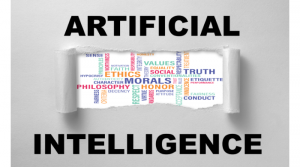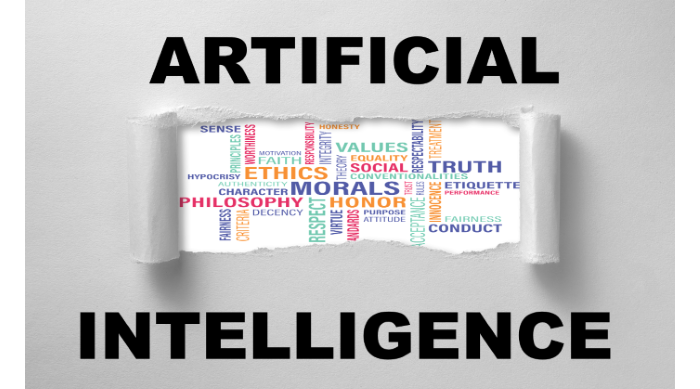 If there was ever a time that ethics should be formally applied to technology, it is with the emergence of Artificial Intelligence. Yet most of the big AI companies struggle with what should seem a simple task: defining ethics for the use of their products. Without the underpinnings of a moral backbone, powerful tools often become a caustic capability for abuse. AI technology leaders must establish the guard-rails before chaos ensues.
If there was ever a time that ethics should be formally applied to technology, it is with the emergence of Artificial Intelligence. Yet most of the big AI companies struggle with what should seem a simple task: defining ethics for the use of their products. Without the underpinnings of a moral backbone, powerful tools often become a caustic capability for abuse. AI technology leaders must establish the guard-rails before chaos ensues.
As the great strategist Sun Tzu professed “Plan for what is difficult while it is easy, do what is great while it is small”. It is a tough challenge to find the right ethical balance when it comes to the complexity of Artificial Intelligence. Even more difficult is establishing a reasonable governance and sticking with it. However, as AI gains in power with vast amounts of data, it will impact almost every aspect of our lives, from healthcare, finance, employment, and politics. The benefits will solidify a deep entrenchment of AI systems in our digital ecosystem. Establishing parameters now is challenging, but it will be far more difficult to avoid catastrophe later if we populate the world with AI systems that can be misused.
AI for Everyone
AI/Ethics is crucial for the long-term security, privacy, and safety of those who are intertwined with the digital world. Organizations with forethought and true social responsibility will lead the way and separate themselves from companies who only use such initiatives as thin marketing ploys. But there are tradeoffs that these companies must weigh.
Autonomous systems are perfect for analyzing information from massive amounts of data that groups, classifies, builds profiles, and makes decisions with high degrees of accuracy, consistency, and scalability. Such abilities can be highly prized and profitable but is alarming from a privacy, security, and safety perspective. Should AI systems profile every person to determine the best way to influence them for any topic such as politics, religion, and purchasing preferences? Should they be empowered to make life-and-death decisions? What about AI systems which show preference or discriminate against social, racial, or economic groups? Even if it is accidental, occurring because a lack of design oversight, are these situations ethical?
Such systems have the power to change the world. And where there is power, there is money, greed, and competition. To purposely avoid certain use cases of AI systems comes with an opportunity cost of missed financial windfalls and prestige. Companies understand this trade-off and it is difficult to forego such lucrative prizes especially if their competitors may maneuver to seize them.
Early Moves
Currently, the efforts to establish ethics for the use of Artificial Intelligence is still in its infancy. There are academic, political, and business initiatives, but we are in the early stages of theory and practice. Whatever standards are created and implemented must be tested over time. The real validation will be around the perceived sacrifices of power and financial gain. Although consumers may feel all this is out of their control, in fact as a community, they have a tremendous amount of influence. Society can collectively support or shun organizations based upon their ethical choices, resulting in impacts to profits, influence, and power.
Acting Together and with Forethought
As consumers, we have a choice to support businesses that fall into 3 categories of maturity:
- Irresponsible: Tech companies that have yet to publish ethical guidelines for their AI products and usages. With a lack of motivation, expertise, or simply only focus on self-interest, they have not taken steps to purposefully guide AI systems to remain benevolent. Instead, either by intent or ignorance, they will use AI for whatever pursuits benefit them without the burden of considering the greater consequences.
- Striving:Organizations with a moral compass that have put forth the effort to establish AI Ethical policies but are struggling to implement the right balance. Time will tell what direction they go and their true level of commitment. Companies like Google, which recently disbanded their new AI ethics council, have worked hard to define a direction and governance but are finding difficulty in solidifying a structure that represents the optimal balance. Of note, Google does listen to its employees, partners, and the customers when it comes to inputs for decisions.
- Leaders: Then there are those organizations, still few in number, who have fully embraced AI/Ethics with a greater level of social responsibility. They see both the opportunities and risks and are willing to forego some short term advantages for the betterment of all. They use AI with forethought and transparency to benefit their users, improve their services, and build trust by show their willingness to do what is right.As members of society, each of us should recognize and show economic support for the Artificial Intelligence ethics leaders and those who are continuing to effort attaining such a prestigious status. As citizens, our political support is crucial for proper regulations, enforcement, and legal interpretations that set a minimum standard for acceptable behavior and accountability. As consumers, voting with our purchasing preferences, we can make ethical AI leadership a competitive advantage.
In the end, Artificial Intelligent systems will be analyzing our data and determining what opportunities and impacts will affect each of us. We have a responsibility to protect ourselves by supporting those organizations who are operating with purposeful ethical standards in alignment to what we deem acceptable.#artificial_intelligence #ethics #cybersecurity #AI







Facing the Quantum Nature of EUV Lithography